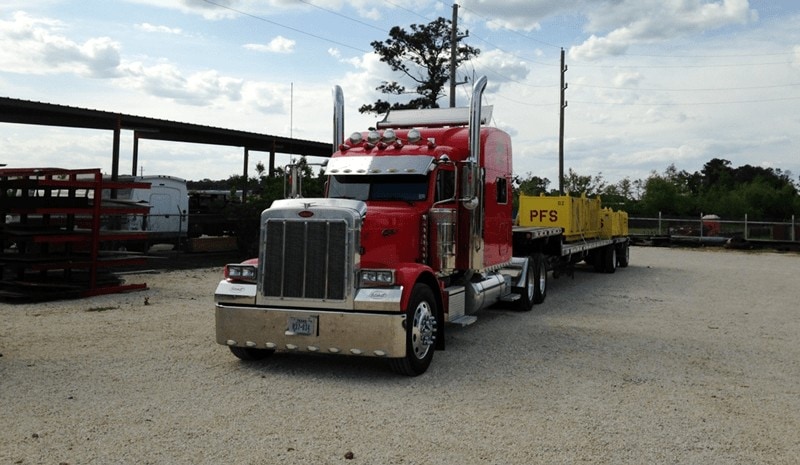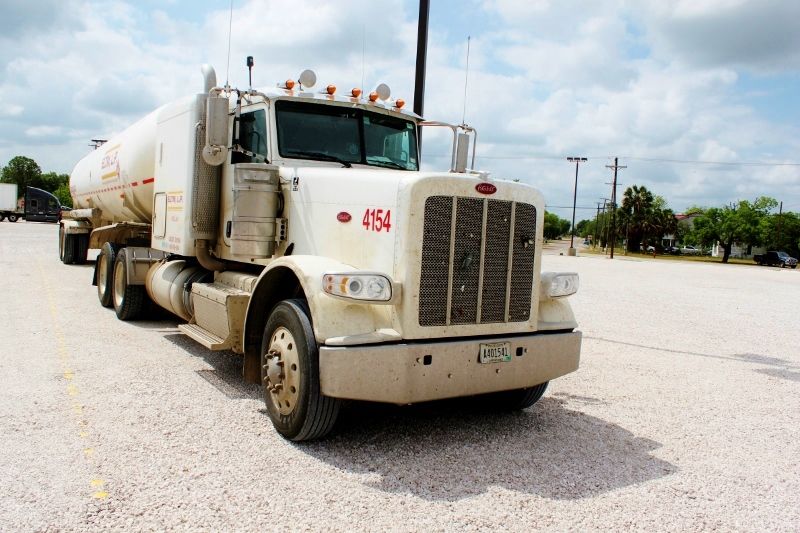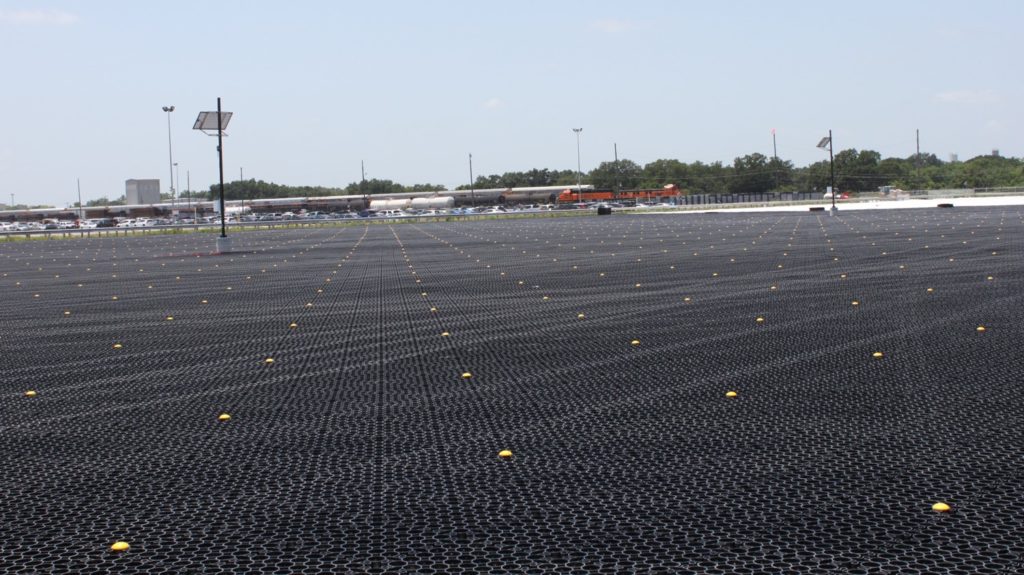Parking lots are similar in that they all share a common characteristic, they are used to park vehicles. They also need to be able to effectively perform for an extended period of time.
Vehicles come in all shapes and sizes, however, like giant 18-wheelers and transportation trucks. Due to the sheer size and weight of these types of vehicles, their parking lots also need to be adapted to handle the extra weight.
Parking lots are subject to a number of environmental and man-made factors that need to be taken into consideration before construction, and truck stop parking lots are no different. The materials required to support these massive trucks can’t be anything less than the best if you want your parking lot to last. A truck stop parking lot built with average or low-quality materials will degrade much faster than a regular supermarket parking lot, for instance.
In case you’re looking to build a truck stop parking lot, let’s go over everything you need to know so you can create the highest-performing parking lot possible and minimize any unnecessary maintenance costs as well.
How to Plan a Truck Stop Parking Lot

The first thing any good truck stop parking lot design needs is a careful consideration of the forces and stresses that will be placed on it throughout its lifetime. We’re talking about factors such as multi-ton vehicles driving and parking on the lot for extended periods of time, temperature fluctuations, drainage concerns, and landscape fixtures as well.
The material you build a truck stop with can have an impact on the overall cost of the project as well. Concrete and asphalt, for example, are impervious materials. This means you’ll need some kind of drainage system, sump pumps, and possibly a detention pond to deal with all the stormwater.
There are also other factors that can have a big impact on the long-term health of your truck stop parking lot if it’s made out of asphalt or concrete. Asphalt gets hot, sticky, and soft in the summer heat. Heavy trucks can easily tear up asphalt in hot climates. Concrete is tougher but more expensive and has its own issues with heavy loads. Concrete easily cracks in extreme temperature fluctuations with soil movements and underlying water damage, leading to the need for regular, expensive maintenance just to make sure the lot is still usable.
Alternatives to Asphalt and Concrete for Truck Stops

Clearly, neither asphalt or concrete are ideal materials for a truck parking design layout in 2020. What alternatives are there if you want to build a lot that can withstand (and handle) everything that a full-sized truck parking lot needs to handle? Gravel would be one option, but on its own, it tends to get scattered and rutted, very dusty in dry climates, and a buddy mess in rain. Gravel alone is simply unfit for a truck stop parking lot.
Combined with permeable pavers, however, gravel is a fine option. For a parking lot expecting such heavy-duty usage as a truck stop parking lot, permeable pavers combined with limestone, gravel, or other angular aggregates can far outperform asphalt or concrete.
TRUEGRID permeable pavers are made from the highest-quality recycled plastic, making them more durable than concrete which chips easily, or asphalt which melts and requires regular maintenance. It’s also a much faster install than the other roll-out pavers out there, and the pavers will withstand the weight of heavy vehicles even without gravel in them.
In terms of liquid drainage and retention, these permeable pavers require zero added drainage, as they function as drainage themselves. Any liquid, including rainwater, oil, gas, coolant, diesel, and more, will all drain directly through into the soil where it can be safely filtered and dispersed before it reaches any waterways or aquifers.
Plastic Permeable Pavers Can Help You Design the Perfect Truckstop

When it comes to building a truck stop parking lot, concrete and asphalt are no longer the best, most cost-effective materials now that we have materials much more suited for the job. When companies are saving themselves nearly a million dollars by installing permeable paving parking lots with gravel-fill, it would be ludicrous to waste money now, and in the future, by building an outdated asphalt or concrete lot.
The maintenance costs, installation costs, and negative environmental impact of these materials should be your key to avoiding them. If you want to build a truck stop layout that’s durable, resistant to weather damage, erosion, or traffic damage, you should heavily consider permeable pavers.
Not only are the permeable pavers from TRUEGRID made with the most eco-friendly practices, but they also outperform concrete and asphalt in terms of durability, and the overall cost of installing and maintaining a permeable paver truck lot is astronomically lower than that of other types of lots.



